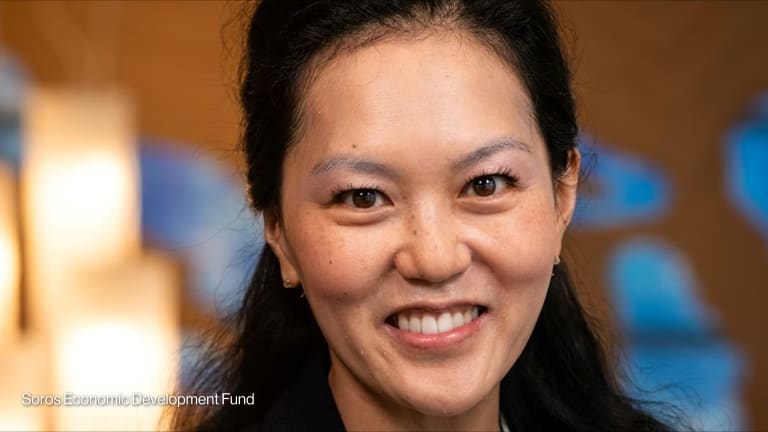
As the global mood tilts toward nationalist and isolationist politics, the Organisation for Economic Co-operation and Development is positioning itself for a stronger leadership role in advocating for its ideals, and working to achieve the Sustainable Development Goals.
“This is a critical time for the OECD. The values that underpin this organization — evidence-based analysis, fact-finding, multilateralism, transparency, open borders — from various sectors, they're under attack,” Douglas Frantz, the deputy secretary-general of the OECD, told Devex. “I think it’s really critical that the OECD stands up for the values that have been built up here over the last 60 years.”
Defending those values will mean telling a better story, and convincing policymakers and the public why this moment is critically important to sustainable development, particularly as the world faces the worst humanitarian crisis since 1945, he said.
“The biggest priority for the OECD and for the United Nations is to tell the world how urgent the SDGs are. We need for them to understand the urgency here,” he said, speaking to Devex last week. “I want to take the rhetoric and the good intentions and translate them into concrete actions.”
Frantz said he hopes that the United States in particular does not dramatically pull back its foreign aid commitments, and that “good sense prevails in Congress.” Still, the OECD needs to find ways to help the rest of the world fill whatever gaps are created by shortfalls due to U.S. government funding cuts, he said.
ODA ticked up in 2016, but private sector is more important than ever
Official development assistance may have ticked up in 2016, but private capital is needed to achieve the SDGs. Determining how groups such the OECD, donors and the private sector can better mobilize capital and partners were the key themes of the OECD Global Forum on Development last week.
The OECD is increasingly advocating for the private sector to step in, arguing that companies that incorporate the SDGs into their business plans will be better equipped for a changing world, and will outperform their peers.
“I think any company that has its head in the sand when it comes to the SDGs is missing not just an opportunity to help the world, but more importantly, they're missing an opportunity to help themselves, to push their bottom line forward,” Frantz said. “Because if we don’t have sustainable development, markets will go away, instability will increase, corruption will expand and they won't simply have people to buy their products.”
The OECD will be looking for ways “to be a catalyst for bringing more private sector money into development assistance,” Frantz said.
Corporate approaches that combine doing good with making a profit, or building a market, will be key. He pointed to the example of automaker Volvo, which has partnered with NGOs to build three schools in Africa to train mechanics.
The OECD’s SDGs plan
The OECD’s action plan for the SDGs is motivated by three key roles: Measuring progress, developing evidence-based policies to achieve the goals, and helping find ways to finance the goals.
So far, the organization has launched a series of programs in line with those roles, including helping national statisticians from developing countries and working to use official development aid to catalyze blended finance. The OECD is also applying an SDG lens to its own work and reviews.
“The ultimate goal is to work with governments — both OECD members and the partner countries — to help them understand where they are on the SDGs and what the best policies are for moving forward,” Frantz said.
Underpinning many of these efforts is a focus on addressing government corruption — which hurts countries’ abilities to achieve the goals, but also to attract private investment.
OECD may also get involved in helping create a universal set of definitions or framework for sustainability investing, an idea that grew out of conversations at an OECD forum last week on partnership and the role of the private sector in financing and implementing the SDGs. Frantz said he sees demand for a set of benchmarks, and the OECD may have a comparative advantage in building such a framework.
He urged concrete actions to follow up on events and discussions, such as last week’s forum. “If we don’t do that, the momentum will fade and we will miss an historic opportunity,” Frantz said.
Read more international development news online, and subscribe to The Development Newswire to receive the latest from the world’s leading donors and decision-makers — emailed to you free every business day.








